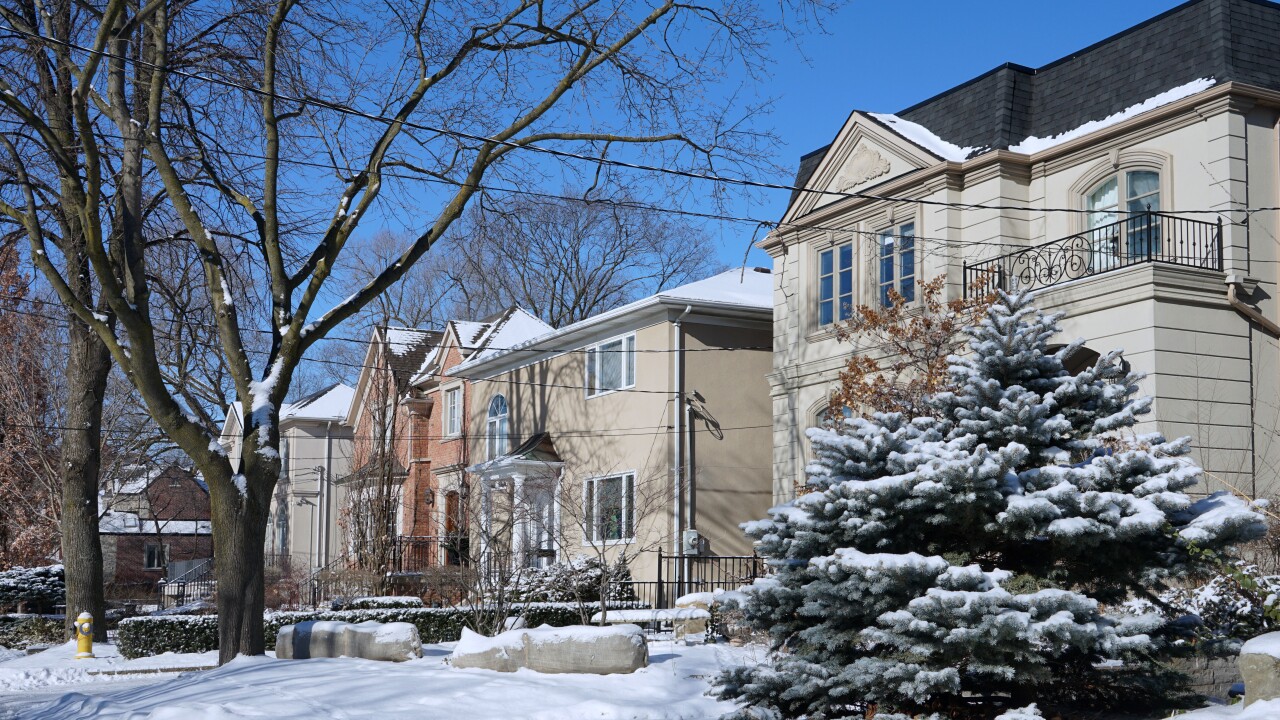Fraudulent practices and false representations made by units at Countrywide Financial Corp. led MBIA Insurance Corp. to guarantee mortgage-backed securities that have already cost the insurer $459 million in policy claims and exposed it to several hundred millions more, MBIA said in a lawsuit filed earlier this week.
Anxious to expand its market share, Countrywide engaged in "a wide variety of deceptive practices" and "deliberately abandoned its own guidelines to drive up revenues from increased originations fees, securitization fees, and servicing fees no matter the cost to borrowers, investors, or guarantors like MBIA," according to the suit filed in New York Supreme Court.
Bank of America Corp. which acquired Countrywide earlier this year declined to comment on the lawsuit. It has 30 days to respond to the complaint in person or 35 days by mail, the court clerk's office said.
Like other bond insurers, MBIA's insuring of structured finance products involving mortgages has eroded its financial position and led to rating downgrades. The suit references 10 residential mortgage-backed debt securitizations encompassing more than $14 billion in mortgage loans.
Countrywide began to originate and securitize riskier products beginning in 2004, always maintaining that its underwriting and risk management policies "remained highly rigorous," the lawsuit says.
But Countrywide often sacrificed its underwriting policies in a push for market share that cost MBIA when the insurer had to fulfill guarantees on securities it would not have backed had it known of Countrywide's failure to adhere to its own policies, the complaint states.
Countrywide "developed a systematic pattern and practice of abandoning its own guidelines for loan origination: knowingly lending to borrowers who could not afford to repay the loans, or who committed fraud in loan applications, or who otherwise did not satisfy the basic risk criteria for prudent and responsible lending that Countrywide claimed to use," the lawsuit said.
Countrywide often "stonewalled" and provided incomplete files when MBIA asked for information on loans that defaulted, according to the lawsuit. Of the defaulted and delinquent loans MBIA has since reviewed, almost 90% had material discrepancies, such as the lack of verification of a borrower's assets or income, invalid or incomplete appraisals, and FICO [credit] scores that fell below Countrywide's guidelines.
In addition, Countrywide has not repurchased or replaced the loans suffering from a breach of representation or warranty as it promised, according to the lawsuit. Countrywide also failed to properly service loans when payments could still be made on them and continued to charge fees for servicing other loans long after there was any chance of payment, the suit says.
"MBIA has been substantially harmed by Countrywide's misrepresentations concerning the quality of loans it made and contributed to a number of MBIA-insured securitizations," the insurer said in a statement. "In addition, after extensive review, it is clear that Countrywide has failed to honor its contractual obligations regarding the handling of loan repurchases and ongoing servicing practices. MBIA has stated repeatedly that it will vigorously pursue all claims for improper practices by originators while continuing to meet its obligations to policyholders."
Other bond insurers have also taken steps toward enforcing the representations and warranties on loans packaged into securities they backed. Ambac Financial Group reported in its second-quarter earnings announcement that it had found "substantiated breaches of representations and warranties" on more than 1,800 loans its consultants had reviewed, which represented only an initial sample of mortgage loans it planned to look at.





